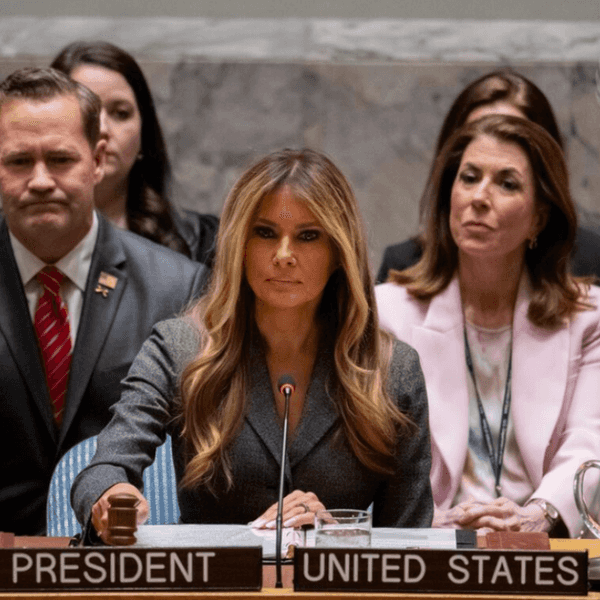
Somewhere in the midst of an avalanche of sickening revelations about child sex abuse by Catholic clergy it occurred to me that if the Vatican sought an appropriate penance for its sins, it would go mute on issues of sexual morality for about 100 years.
Needless to say, that’s not about to happen.
Instead, habemus papam. Catholics have witnessed the unprecedented resignation of Pope Benedict, widely seen to have failed utterly to cope with the Church’s grave crisis — perhaps even in his own estimation — and the remarkable accession of Pope Francis.
During the months since his selection, the 76-year-old Argentine has stirred an outsize response throughout the world — galvanizing not only the world’s 1.2 billion Roman Catholics, but members of other faiths and even the irreligious with a shrewd blend of public theater and spiritual humility.
Writing in the New Yorker, James Carroll reports that “even ‘kick the Pope’ Orangemen in Northern Ireland love Pope Francis. The press is obsessed with him. Time recently named him Person of the Year.”
Who else, indeed?
Renouncing many of the papacy’s monarchial trappings, Francis has made a shift to return even the most formalized ritual to its roots in the gospel. Rather than re-enacting Jesus’ washing of his apostles’ feet on Holy Thursday with carefully groomed young priests—as was long the custom—the new Pope appeared at an Italian prison.
There, Carroll writes, “he washed, dried, and kissed the feet of twelve young inmates, some of them bearing tattoos. Two were Muslim. More pointedly, in violation of Church tradition, two of the apostolic stand-ins were women. When one of the inmates asked the Pope why he had come to them, he said, ‘Things from the heart don’t have an explanation.’”
Elsewhere, the new Pope has stressed a less legalistic, rule-bound encounter with the faith, seeking always to forgive rather than to judge. In a remarkable interview with the Jesuit magazine America he stressed that “we must always consider the person.”
“This is…the great benefit of confession as a sacrament, evaluating case by case and discerning what is the best thing to do for a person who seeks God and grace,” Francis elaborated. “The confessional is not a torture chamber, but the place in which the Lord’s mercy motivates us to do better. I also consider the situation of a woman with a failed marriage in her past and who also had an abortion. Then this woman remarries, and she is now happy and has five children. That abortion in her past weighs heavily on her conscience and she sincerely regrets it. She would like to move forward in her Christian life. What is the confessor to do?”
It’s a rhetorical question with no one-size-fits-all answer. But the torture chamber metaphor has particular resonance coming from an Argentine, who presided as Bishop of Buenos Aires during that country’s “Dirty War,” when dissidents against the military government were kidnapped, tortured and flung out of airplanes into the Atlantic Ocean.
Harping on abstract doctrine, Francis stresses, distorts the essence of belief. “We cannot insist only on issues related to abortion, gay marriage and the use of contraceptive methods….The teaching of the Church, for that matter, is clear and I am a son of the Church, but it is not necessary to talk about these issues all the time.”
At the New York Times, this came out “Pope Says Church Is ‘Obsessed’ With Gays, Abortion and Birth Control.” Actually, writes Mark Shea in the National Catholic Register, he said no such thing. He stressed that not all rules are of equal importance, and that none should supersede compassion and forgiveness.
Anybody expecting immediate transformation of Catholic teaching about what Shea calls “the Pelvic Issues” is apt to be disappointed. On the other hand, an American cardinal who made a point in a recent TV interview of stressing that, contrary to the new Pope, “we can never talk enough” about abortion and “the integrity of marriage as between one man and one woman,” was quickly reassigned.
The Catholic Church has never been a democracy.
It’s also true, Carroll reports, that a Papal synod will convene in 2014 year to ponder “The Pastoral Challenges to the Family in the Context of Evangelization.” The Vatican has asked Catholic dioceses to distribute “a questionnaire that asks about divorce, birth control, unmarried people living together, and gay marriage.”
So why ask if no changes are possible? Particularly when many Catholics feel the Church has basically been selling annulments to the likes of Newt Gingrich and Teddy Kennedy, while treating divorce as a terrible sin. Hardly anybody thinks birth control wicked.
The Church, of course, never claimed to be God. As a human institution, it’s prone to all the sin, folly and corruption we’re all capable of. In his own way, Pope Francis appears to be seeking forgiveness.
AFP Photo/Andreas Solaro








